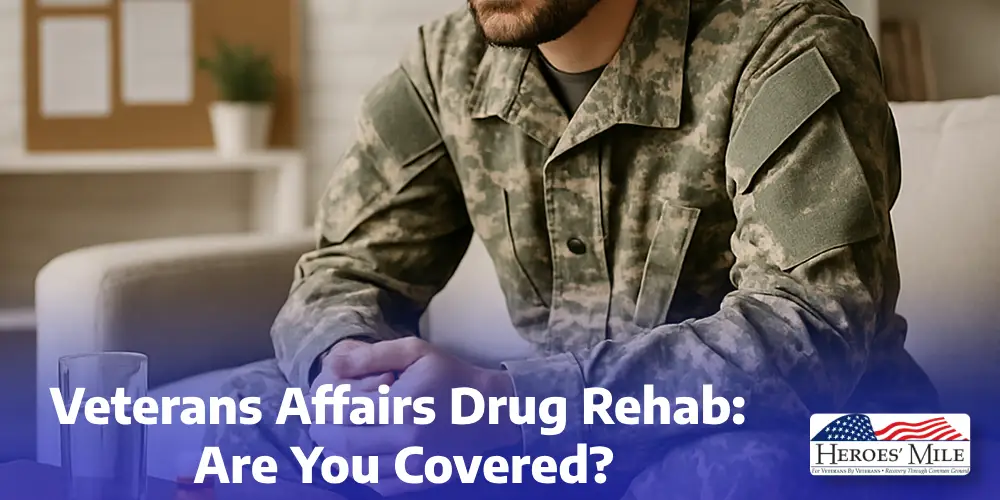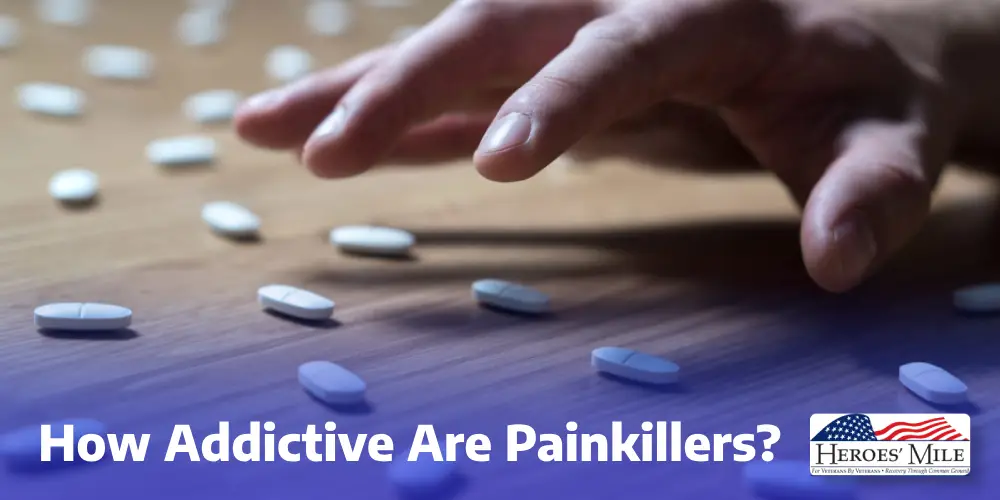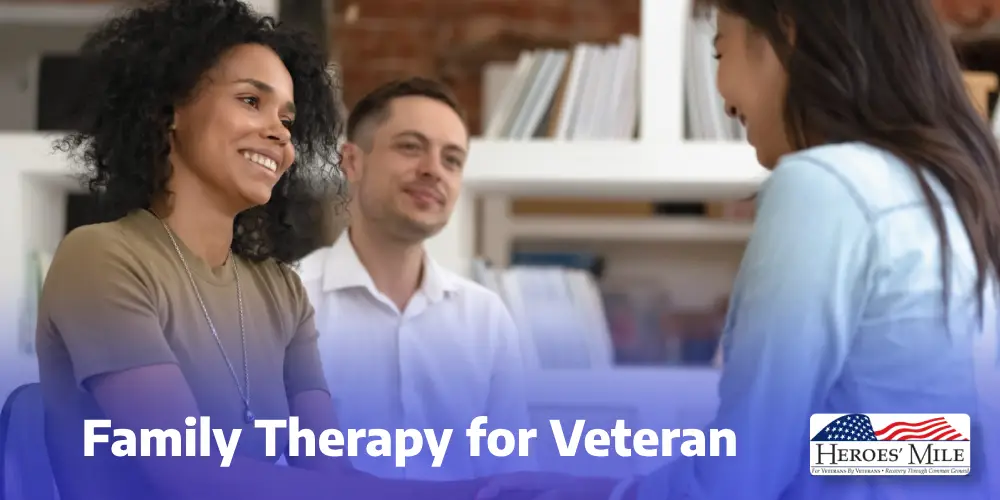Watching a loved one struggle with an addiction is extremely painful. This is especially true when that someone is a veteran, since this population often needs specialized care in order to find recovery. If you know a veteran who needs help, you might be wondering how to get someone into drug rehab. And we want to help.
Below, we’ll cover the process of how to get someone into drug rehab as well as all the steps you can take to best support your loved one through this difficult but rewarding journey.
Do Veterans Need Drug Rehab?
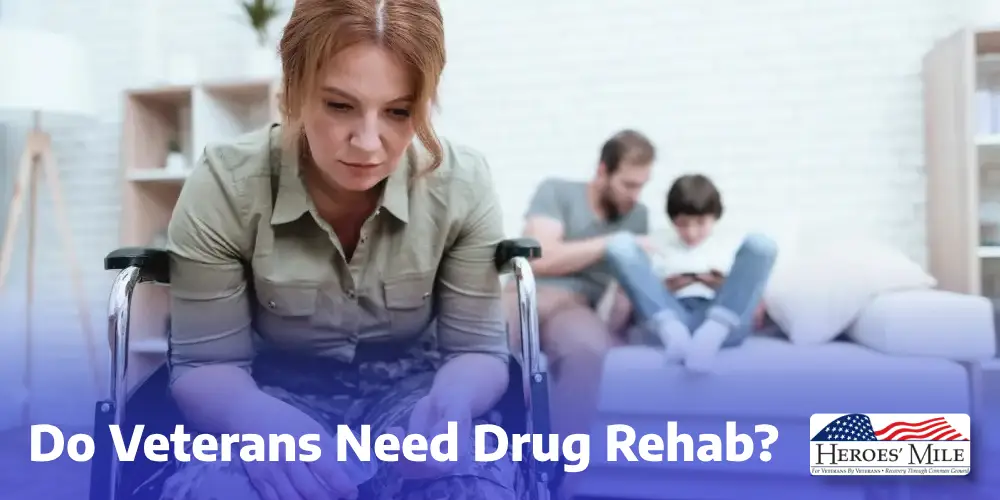
Do Veterans Need Drug Rehab?
For veterans who try to keep to themselves, detecting the signs of addiction can be particularly challenging. However, some common red flags to look out for in a loved one include:
- Changes in mood or behavior
- Increased isolation
- Erratic or impulsive actions
- Going to extraordinary lengths to obtain drugs
- Using painkillers outside of the prescribed use
- Worsened mental health
- Financial or career strain
- Relationship struggles
The symptoms of drug addiction can look different for everyone. That said, if any of these signs of addiction look familiar—or if you know that your loved one hasn’t been themselves—then you might be wondering about the next steps on how to get someone into drug rehab.
How to Get Someone Into Drug Rehab for Veterans
This is a complicated question, but one that many concerned family members or friends of veterans who are struggling with addiction want to know: how can you actually convince your loved one to get help? The truth is that, for many people struggling with addiction, recovery can only happen once they hit rock bottom. And recovery is something that they have to choose themselves.
However, there are a few different ways that you can help a veteran understand that they might need drug rehab:
1. Offer to Help a Veteran Find Help
The first step of how to get someone into drug rehab is to show them that you’re there to help. Some service members feel that they need to be strong in solitude. In military culture, there’s often an attitude that asking for help or having struggles after serving is a sign of weakness. However, this is far from the truth.
It takes a lot of courage and strength to be able to admit to and address a drug addiction problem. Sometimes, lending a hand can be exactly what your loved one needs to take that step forward toward recovery. One way that you can show you care is to help them look into treatment centers that specialize in giving veterans the care they need—this way, all they’ll need to do is work on their health and happiness.
2. Guide Your Loved One Toward a Veteran Rehab Community
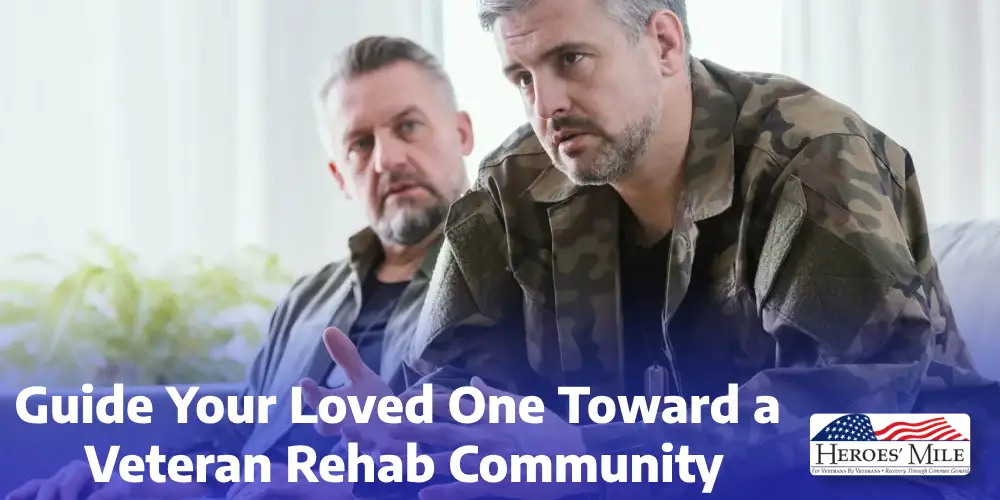
Guide Your Loved One Toward a Veteran Rehab Community
Another way that you can help veterans to understand that they need drug rehab is by reminding them that they’re not alone in their struggles. Many veterans feel as though nobody understands what they’ve been through. Again, this is far from the truth. In actuality, studies show that over 10 percent of veterans struggle with a drug addiction or other form of substance abuse.
In addition to this, veterans who have post-traumatic stress disorder (PTSD) are at an even greater likelihood of struggling with addiction. Veterans encounter a lot of stressors that most civilians don’t on a daily basis. These can include:
- Combat exposure
- Military sexual trauma
- Service injuries
Talking about the events that they experienced could be a real challenge for some veterans. Instead, many look to drugs or alcohol to hide the pain that they are feeling. As a friend or family member, maybe you can’t relate to everything a veteran is experiencing. But if you’re trying to figure out how to get someone into drug rehab, directing them toward a community of veterans in recovery can be a big help.
This is one of the reasons why choosing a treatment center that is made by veterans can be extremely beneficial for your loved one. Being treated by other veterans who have gone through similar experiences can help show your loved one that they truly are not alone, and that recovery is not impossible.
3. Consider an Intervention
In some cases, an intervention is necessary to help your loved one see that there is a serious problem at hand. An intervention in this context is when family members, friends, and other loved ones come together to express their concerns to the person who is struggling with addiction.
During an intervention, you might share some of the symptoms of drug addiction that you’ve noticed. You might also choose to voice how their addiction has impacted your relationship to them. After all, nobody wants to see their loved one go through these difficulties, especially when the substances they are using could pose life-threatening dangers. But an important thing to note is that placing blame is not a good strategy if you want to get someone into drug rehab. Rather, you should try to relate your statements back to your love and concern for the individual.
But even with the best intentions, emotions can run high during interventions. It’s usually best to approach these with a mental health counselor or a professional interventionist. These experts can help mediate between you and your loved one. Furthermore, they might be able to better explain the ways in which treatment can help veterans get their lives back on track.
Is Drug Rehab for Veterans Covered?
After you’ve talked to your loved one about going to rehab, the next step is making sure that they can afford to go. Often, financial concerns are a big hurdle to overcome in figuring out how to get someone into drug rehab. Even for veterans who can afford it, many may wonder if addiction treatment will be worth the cost.
The good news is that veterans who receive benefits through the VA are eligible to have drug rehab completely covered. Some treatment approaches included in this coverage are:
- Supervised detox
- Cognitive behavioral therapy
- Eye movement desensitization and reprocessing (EMDR) therapy
- Recreational and art therapies
- Support groups
- Job readiness training
- Nutritional education
- Discharge services
This process of getting drug rehab covered can seem confusing, but that’s where admissions specialists at veteran-focused centers come in. Treatment facilities that partner with Community Care services can work with the VA to make sure that your loved one doesn’t have to worry about anything but their own recovery. The treatment center will also be able to walk you and your loved one through any further questions you might have.
FAQ
- How do I convince a loved one to go to rehab?
Approach them with empathy, provide factual information, and consider staging an intervention with professional support. - Can I force someone into drug rehab?
In some states, involuntary commitment laws allow family members to admit a loved one into treatment if they are a danger to themselves or others. - What should I do if my loved one refuses rehab?
Keep communication open, set boundaries, and consult an addiction specialist for guidance on the next steps. - Does insurance cover drug rehab treatment?
Many insurance plans cover rehab services, but coverage varies. Check with your provider to determine eligibility and costs. - How do I find the right rehab facility?
Research accredited rehab centers, consider their treatment programs, and ensure they align with your loved one’s needs, including inpatient, outpatient, or dual diagnosis care.

